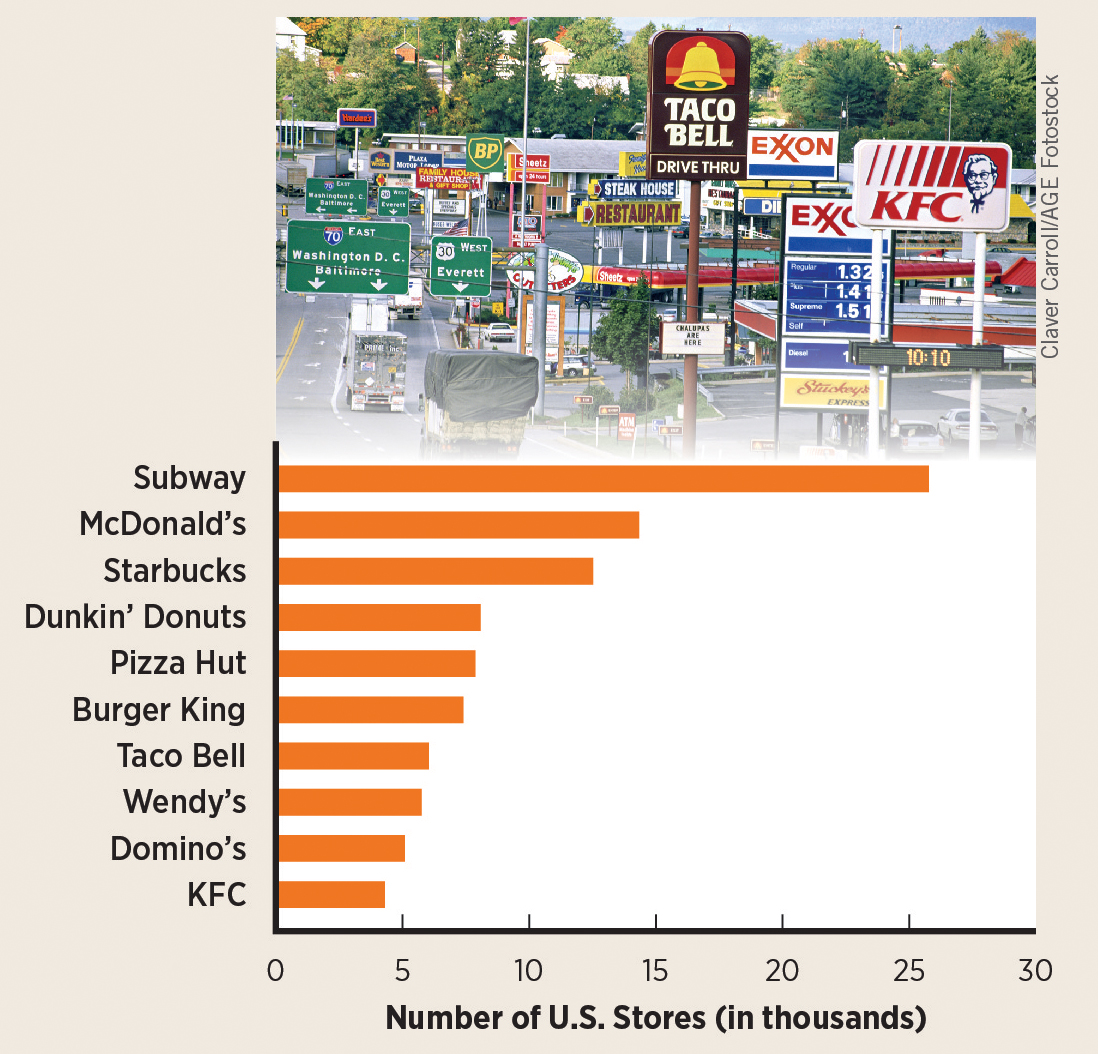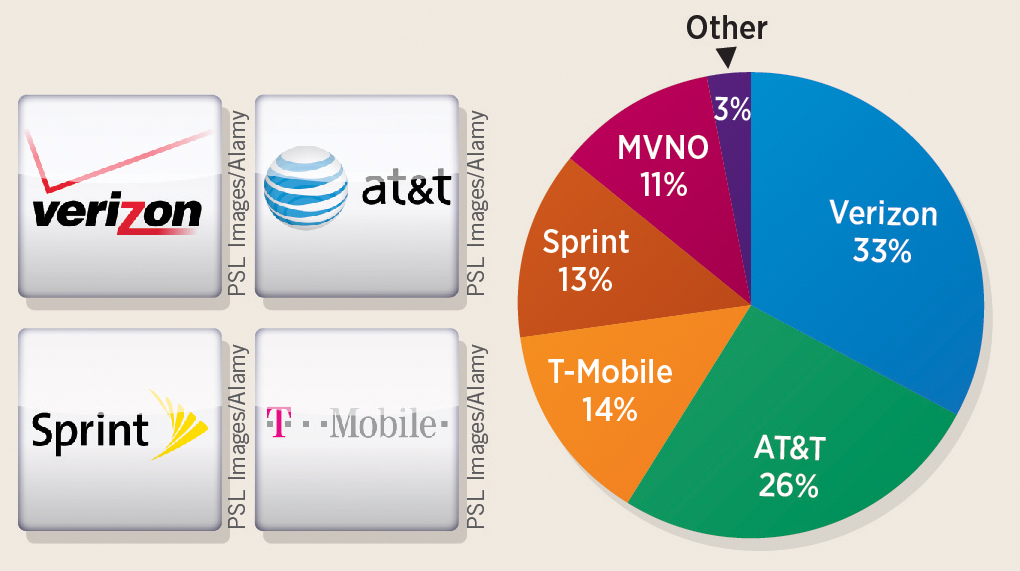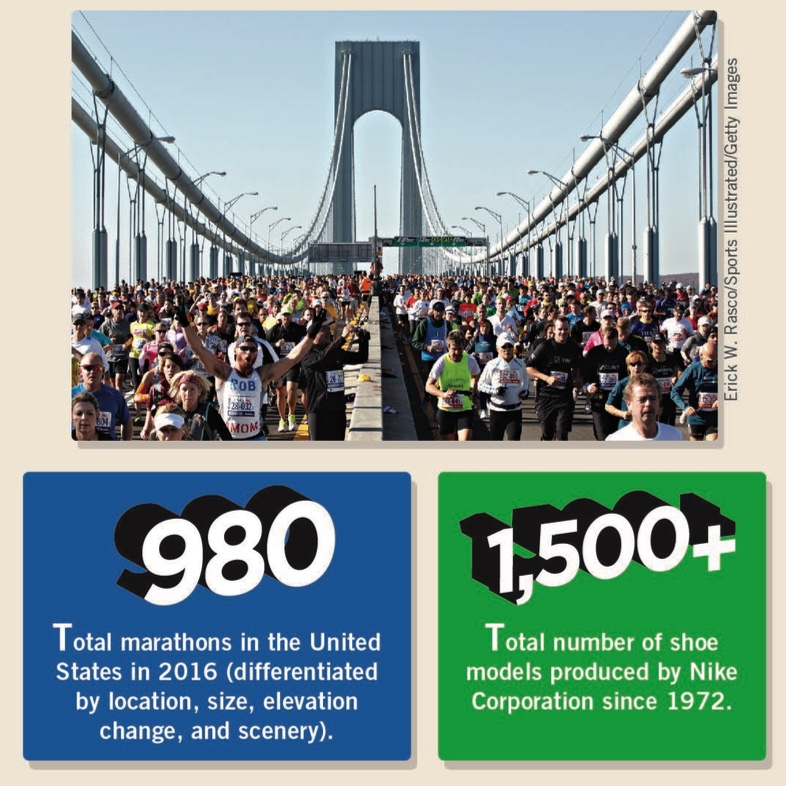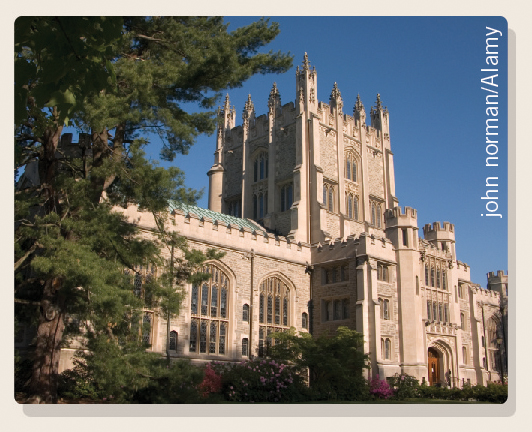251
Product Differentiation and Market Share
For nearly all goods and services we buy, we are faced with numerous choices: brands, features, quality, style, and more. Product differentiation is a signature characteristic of monopolistically competitive markets, and to a lesser extent oligopoly markets.

The largest fast-

The wireless communications market is an oligopoly dominated by four large firms, controlling 86% of total market share. Of the remaining market share, 11% is controlled by mobile virtual network operators (MVNO), which are smaller companies (such as prepaid wireless service providers) that lease wireless service from the four major carriers.


Colleges and universities are differentiated by size, location, athletic prowess and academic reputation. They also vary considerably in cost, especially between public and private schools.
| Most Expensive Private College Tuition Per Year in the United States in 2016 | |
| 1. Vassar College; Poughkeepsie, NY | $51,300 |
| 2. Sarah Lawrence College; Bronxville, NY | $51,034 |
| 3. Trinity College; Hartford, CT | $50,776 |
| 4. Tufts University; Medford, MA | $50,604 |
| 5. Oberlln College: Oberlin, OH | $50,586 |
Table 10.1:
Most Expensive Private College Tuition Per Year in the United States in 2016
| Most Expensive Public College Tuition Per Year (state residents) in the United States in 2016 | |
| 1. University of Pittsburgh; Pittsburgh, PA | $17,772 |
| 2. College of William & Mary; Williamsburg, VA | $17,656 |
| 3. Pennsylvania State University; State College, PA | $17,502 |
| 4. Maine Maritime Academy; Castine, ME | $17,120 |
| 5. Colorado School of Mines; Golden, CO | $16,918 |
Table 10.2:
Most Expensive Public College Tuition Per Year (state residents) in the United States in 2016
252